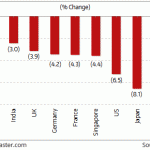“Is it risky?” is one of the first questions you should ask about a new investment. Everyone wants investments with low risk and high returns, but it’s not always realistic. And most importantly, we all have a different feeling about risk.

A great way to test whether your level of risk is appropriate is whether you sleep well at night! If you don’t have the tolerance for risk necessary to hold certain types of programs, don’t invest in them… no matter how much pressure you feel from the investment salesman.
When examining a new idea, consider these three risk categories:
Business risk –This is the potential loss of value to a stock caused by business failures such as company mismanagement, financial insolvency, or too much competition. Choosing popular companies or franchises may be a way to protect against business risk. Airlines, other transportation fields, and construction are particularly prone to business risk.
Valuation risk – What happens if you find a company that is well run and profitable, but the high trading price is in excess of its average earnings? The problem here is not business risk, but valuation risk – will the future value of the stock increase your earnings yield? In this case, a fast decline in sales can easily send stock prices tumbling down because they were originally overpriced. Instead of asking if Company X is a good investment, ask if Company X is a good investment at its current price.
Force of sale risk – Sometimes you may invest in a stock with a specific time limit in mind. If you plan to sell on your time schedule rather than in reaction to the market, you may end up selling at a loss. Given the uncertainty of the market, gambling on a stock increasing in value by a certain date may cause undue stress. If you need liquidity in your investments, choose short-term bonds or cash investments.
Before deciding on a particular investment, make sure its risk factors fit into your risk tolerance levels.












Leave A Comment